Gemstones have been admired and appreciated in all cultures for thousands of years, each with its own unique beauty, history and meaning. Some gems stand out more than others, earning a place in the hearts of collectors, jewelers and enthusiasts around the world. In this blog, we will explore the world’s favorite gems, their origins, their colors and the mines where they are found. In addition, we will go into the history of these gems, why they are so loved, and how they got their names.
Table: World’s Favorite Gemstones – Origins, Colors, and Mines
| Gemstone | Origin | Colors | Major Mines |
| Emerald | Colombia, Brazil, Zambia | Green | Muzo, Coscuez, Kagem, Itabira |
| Ruby | Myanmar, Thailand, Sri Lanka | Red | Mogok, Montepuez, Ratnapura |
| Sapphire | Sri Lanka, Myanmar, Kashmir | Blue, Pink, Yellow, Green | Ratnapura, Mogok, Kashmir |
| Diamond | South Africa, Russia, Botswana | Colorless, Yellow, Pink, Blue | Cullinan, Mir, Jwaneng |
| Opal | Australia, Ethiopia, Mexico | White, Black, Fire, Boulder | Coober Pedy, Wollo, Querétaro |
| Peridot | Pakistan, China, USA | Green, Olive | Zabargad, San Carlos, Kohistan |
| Tourmaline | Brazil, Afghanistan, Mozambique | Pink, Green, Blue, Watermelon | Paraíba, Livaara, Mavuco |
| Turquoise | Iran, USA, China | Blue, Green | Nishapur, Kingman, Hubei |
| Fire Agate | Mexico, USA | Brown, Red, Yellow, Orange | Deer Creek, Aguascalientes, Slaughter Mountain |
Description of the World’s Favorite Gemstones
Emerald (Gemstones)
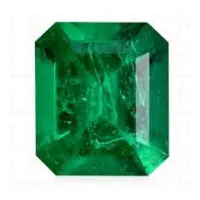
People prize emeralds worldwide, for their captivating green color, symbolizing rebirth and renewal. For centuries, Colombia’s Muzo and Coscuez mines have been among the most special sources of emeralds. Other notable regions such as Zambia and Brazil enhance the worldwide status of this gemstone. The name “emerald” comes from the ancient Greek word smaragdus, meaning “green gem.” Since ancient times, people have prized emeralds for their rarity and brilliant green colors, making them one of the most popular gemstones in the world.
Ruby (Gemstones)

The vivid red color of rubies is commonly associated with love, vitality, and strength. The most special rubies, which are known as “pigeon blood” rubies, come from Myanmar’s Mogok Valley, with additional sources in Sri Lanka and Thailand. The term “ruby” comes from the Latin term ruber, which means “red.” In the past, rubies were believed to provide their wearers with vitality and protection. A rare and difficult to find high-quality ruby is one of the world’s most valuable gemstones.
Sapphire (Gemstones)

Sapphires are most prized for their shiny blue colors, but they are also available in pink, yellow, and green varieties. Sri Lanka, Myanmar, and the famous Kashmir region are the sources of the most exceptional sapphires. The Greek word sappheiros, meaning “blue stone,” is the source of the definition of “sapphire.” Throughout history, people have associated sapphires with nobility, loyalty, and wisdom. The rich colouration and clarity of sapphires, particularly the rare Kashmir sapphires, make them a timeless choice for jeweler.
Diamond (Gemstones)
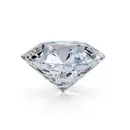
A diamond’s brilliance and durability are unparalleled; they commonly symbolize eternal love and strength. The Cullinan mine in South Africa is a significant source of diamonds, as it is renowned for having produced some of the world’s largest. Botswana and Russia are additional major contributors. The Greek word adamas, meaning “unbreakable,” is the source of the term “diamond.” The discovery of diamonds in South Africa in the late 19th century transformed the industry by increasing the accessibility of these precious stones. Diamonds continue to be a fundamental component of luxury and symbolism.
Shop Now :World’s Favorite Gemstones!
Opal

The charming play of colors in opals is a famous quality that attracts customers with bright flashes of red, green, and blue. The Coober Pedy, Lightning Ridge, and Andamooka regions of Australia are known for the production of some of the most beautiful opals, including the rare black opal. Ethiopia and Mexico also have significant opal mines. The Sanskrit word “upala,” meaning “precious stone,” is the source of the term “opal.” People value opals for their unique visual effects that make each gemstone special, and they often associate them with faith and creativity.
Peridot
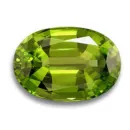
The peridot is known as the “evening emerald” due to its vibrant green with a hint of golden colors. Unlike mines in the United States and China, Pakistan’s Kohistan region serves as a premier source of peridot. The Arabic word “faridat,” meaning “gem,” is the source of the term “peridot.” Recognized for its association with protection and prosperity, peridot offers a cost-effective substitute for emeralds without sacrificing its unique beauty and attraction.
Tourmaline
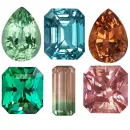
Tourmaline comes in a wide range of colors, including the electric blue Paraíba tourmaline and pink-green watermelon variants. Brazil is the primary source, with more mines located in Mozambique and Afghanistan. The Sinhalese word “toramalli,” which translates to “mixed gemstones,” is the source of the term “tourmaline.” Collectors and jewelry designers value tourmalines for their variety and vibrant colors.
Turquoise
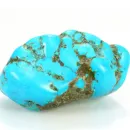
Turquoise can be identified by its remarkable sky-blue to greenish colors. The Nishapur mines in Iran, the Kingman mines in the United States, and the Hubei region of China are the sources of high-quality turquoise. The French term “turques,” which refers to the stone’s introduction to Europe through Turkey, is the origin of the term “turquoise.” Native American art and jewelry prize turquoise for its connection to protection and healing, highlighting its deep historical and cultural significance.
Fire Agate
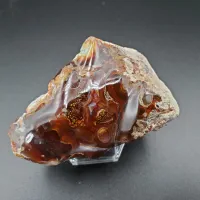
Fire agate captivates with its shimmering, flame-like shine. Vibrant flashes of orange, red, and yellow reflect its dark foundation, primarily found in the United States and Mexico. Famous sources of this rare gemstone include Deer Creek in Arizona and Aguascalientes in Mexico. Named for its resemblance to flickering flames, fire agate’s complex patterns and radiant play of colors make it highly sought after, ensuring no two stones are ever the same.
Conclusion
The world’s most beloved gemstones have captured the hearts and imaginations of people around the world for centuries. Their beauty, rarity and historical importance have made them symbols of wealth, power and love. Every gemstone has a story to tell, from the mines in which they are found to the origin of its name. Whether it’s the rich green of an emerald, the fiery red of a ruby or the dazzling brilliance of a diamond, these gems continue to be loved and sought after for their value.
Unique qualities and timeless appeal.
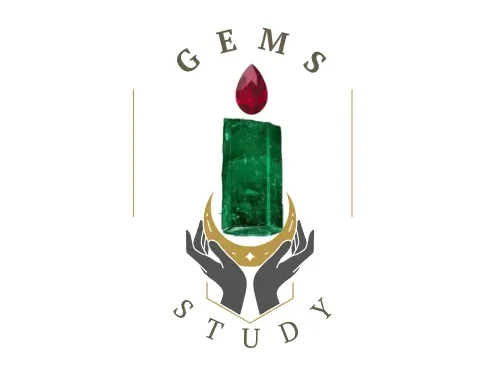
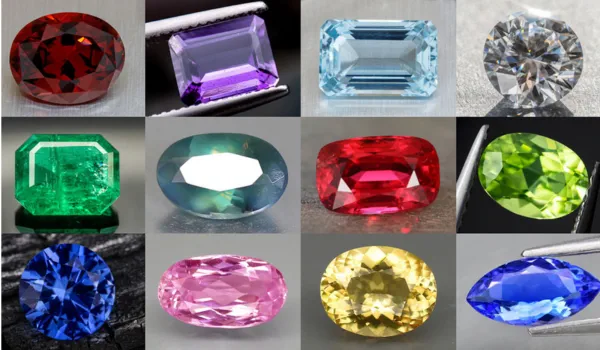
 Arabic
Arabic Chinese (Simplified)
Chinese (Simplified) Dutch
Dutch English
English French
French German
German Hindi
Hindi Italian
Italian Portuguese
Portuguese Russian
Russian Spanish
Spanish Urdu
Urdu